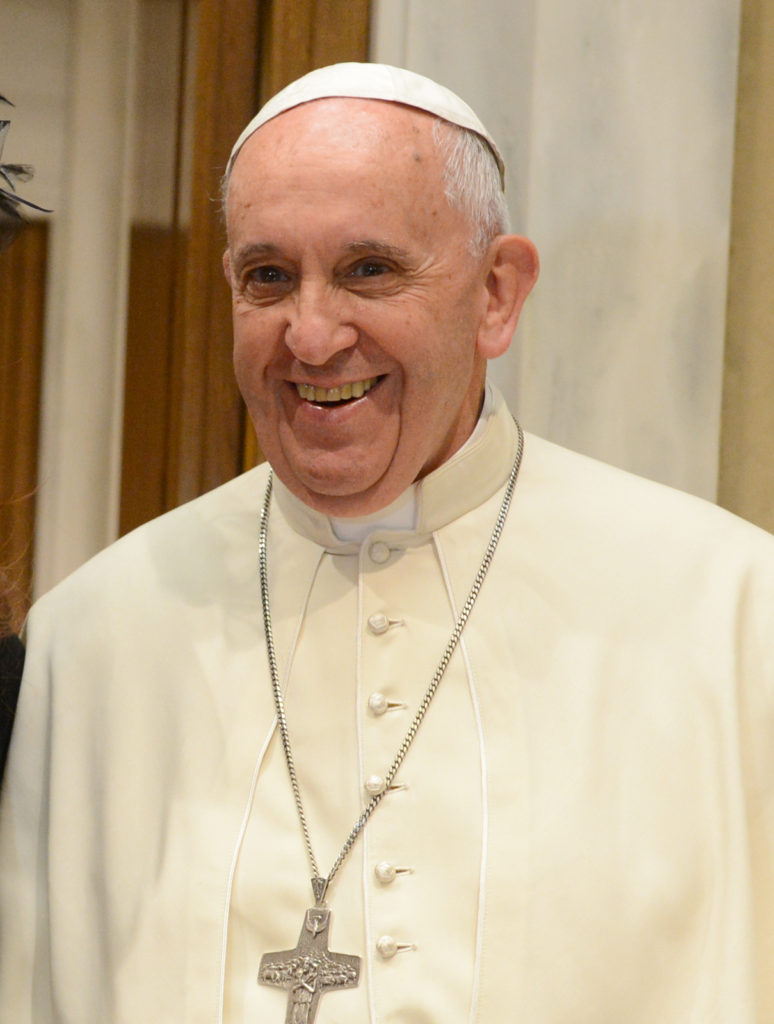For the fifth time in the history of the United Nations, a pope climbed the dais in the General Assembly chamber at UN headquarters in New York to address the world’s leaders. This time, Pope Francis had a strong focus within an overall appeal for peace and love: The earth’s environment must also receive the same care we give each other.
Pope Francis was the inaugural speaker at the ceremony on September 25, 2015, when the UN General Assembly endorsed its new agenda for human development and environmental care. The agenda, known as the Sustainable Development Goals, evolved from the Millennium Development Goals that operated from 200 to 2015. The new agenda of 17 will govern the world’s philanthropy through 2030.

Pope Frances was a compelling choice to introduce the new program. As the world’s foremost spokesperson for ethics and morality, the pope’s messages carry extraordinary weight with not only the world’s Catholics, but for all people. Moreover, Pope Francis has chosen to highlight the needs for conservation and environmental sustainability as no pope before him. A native of Argentina, the pope chose Francis as his papal name because St. Francis of Assisi is his moral guide and inspiration. As Pope Francis stated, Francis of Assisi “is the patron saint of all who study and work in the area of ecology, and he is also much loved by non-Christians. He was particularly concerned for God’s creation and for the poor and outcast.”
Pope Francis made his commitment to conservation clear earlier in 2015, when he issued his Encyclical Letter, Laudato Si,’ subtitled On Care for Our Common Home. The 144-page book is a comprehensive assessment of the state of the earth and a call for us to change our ways of living to embrace sustainability and care of the poor—as he calls them, “the excluded.” He stated explicitly that he was writing to all humans, not just Catholics, by noting that “we need a conversation which includes everyone, since the environmental challenge we are undergoing, and its human roots, concern and affect us all.”

Pope Francis’ address to the UN asserted that a “right of the environment” exists for two specific reasons.
“First, because we human beings are part of the environment, we live in communion with it, since the environment itself entails ethical limits which human activity must acknowledge and respect….Second, because every creature, particularly a living creature, has an intrinsic value, in its existence, its life, its beauty and its interdependence with other creatures. We Christians, together with the other monotheistic religions, believe that the universe is the fruit of a loving decision by the Creator, who permits man respectfully to use creation for the good of his fellow men and for the glory of the Creator; he is not authorized to abuse it, much less to destroy it. In all religions, the environment is a fundamental good.”
In both this address to the UN and his encyclical letter, Pope Francis went on to draw a fundamental relationship between caring for the environment and caring for the poor and downtrodden humans of the world.
“The misuse and destruction of the environment are also accompanied by a relentless process of exclusion. In effect, a selfish and boundless thirst for power and material prosperity leads both to the misuse of available natural resources and to the exclusion of the weak and disadvantaged, either because they are differently abled (handicapped), or because they lack adequate information and technical expertise, or are incapable of decisive political action. Economic and social exclusion is a complete denial of human fraternity and a grave offense against human rights and the environment. The poorest are those who suffer most from such offenses, for three serious reasons: they are cast off by society, forced to live off what is discarded and suffer unjustly from the abuse of the environment.”
The pope is particularly concerned about climate change and those who deny it.
“A very solid scientific consensus indicates that we are presently witnessing a disturbing warming of the climactic system….most global warming in recent decades is due to the great concentration of greenhouse gases (carbon dioxide, methane, nitrogen oxides, and others) released mainly as a result of human activity…. Climate change…represents one of the principal challenges facing humanity in our day.”
References:
Pope Francis. 2015. Pope Francis’s speech to the UN in full. The Guardian, 25 Sep 2019. Available at: https://www.theguardian.com/environment/2015/sep/25/pope-franciss-speech-to-the-un-in-full. Accessed July 1, 2019.
Pope Francis. 2015. The Encyclical Letter Laudato Si’. On Care for Our Common Home. Paulist Press, New York. 144 pages.
Sengupta, Somini, and Jim Yardley. 2015. Pope Francis Addresses U.N., Calling for Peace and Environmental Justice. The New York Times, Sept. 25, 2015. Available at: https://www.nytimes.com/2015/09/26/world/europe/pope-francis-united-nations.html. Accessed July 1, 2019.
